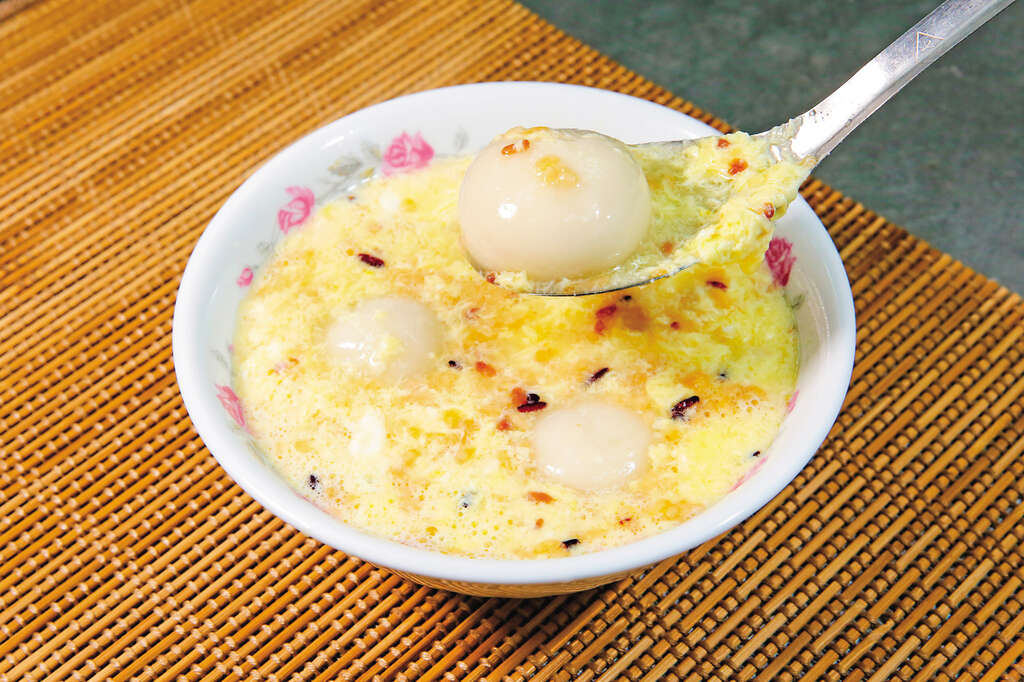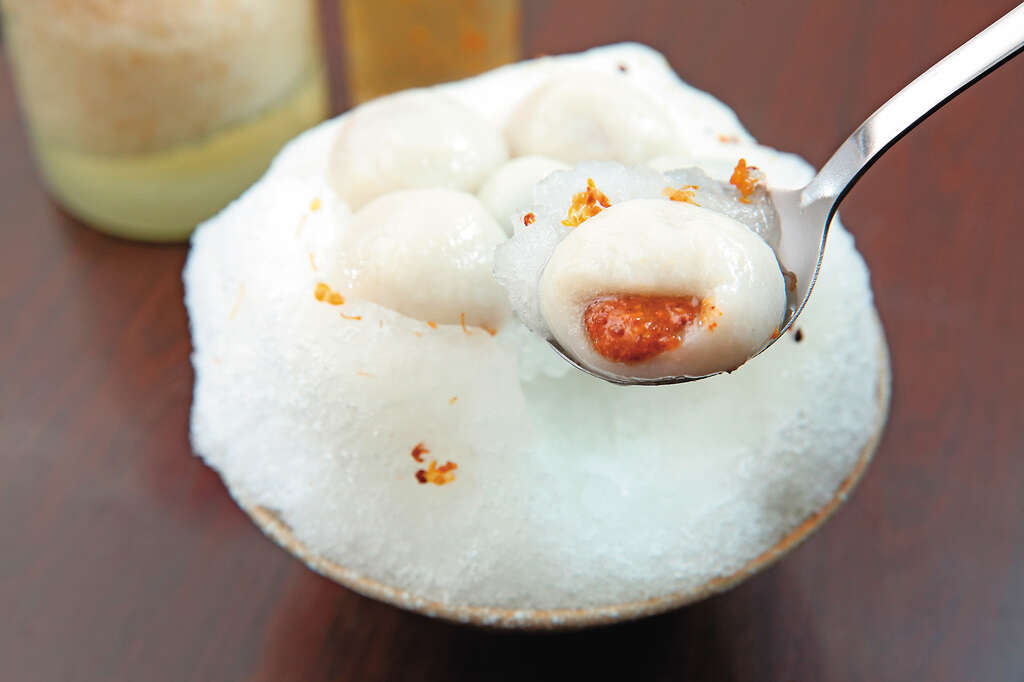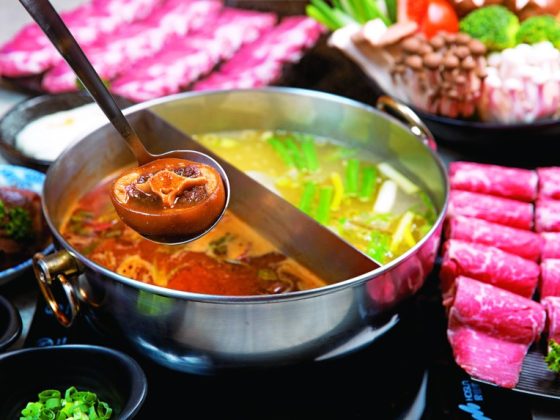WORDS BY Chen Wanyu
PHOTOS BY Lin Junyao, Lin Yuwei
TRANSLATION BY Joe Henley, April Chen
Dongzhi (冬至), also known as the Winter Solstice Festival (冬節), has long been celebrated in Taiwan as one of the 24 Solar Terms (二十四節氣). The Taiwan Prefecture Gazetteer (台灣府志) recorded during the Qing Dynasty that, “On the Winter Solstice, every household makes rice balls to worship the gods and their ancestors. The whole family gather together to eat these rice balls, which are commonly called tiansui, meaning ‘growing older.” (冬至,人家作米丸祀眾神 及祖先,舉家孿陛而食之,謂之添歲也。) Rice balls, as such, are the ancient version of tangyuan. Eating tangyuan on the Winter Solstice symbolizes growing a year older, and praying for reunion and perfection.
In Taiwan’s early agrarian society, people would grind glutinous rice and prepare seasoning on the eve of the Winter Solstice. The whole family would gather together to make tangyuan and eat them at the table after making a sacrifice for their ancestors. Although the modern lifestyle has changed and people rarely make tangyuan by themselves anymore, the custom of eating tangyuan on the Winter Solstice continues, getting a taste of satisfaction and happiness. There are many handmade tangyuan stores in Taipei, each with its own unique characteristics. At the turn of the year, you too should get a bowl of hot tangyuan to welcome the Winter Solstice. (Read also: Lantern Festivals, Rice Dumplings, and Other Taiwanese Traditions)
FERMENTED RICE SOUP WITH EGGS WARMS YOUR HEART AND STOMACH
Tangyuan served with fermented rice (jiuniang, 酒釀) soup and eggs is the most popular tangyuan dish in winter. In Chinese medicine, fermented rice is regarded as the best choice for nourishing your stomach and intestines in winter, but its pungent acidic smell and taste put some people off. However, the owner of Badong Rice Ball (八棟圓仔湯) at Nanjichang Night Market (南機場夜市) says with confidence, “If our fermented rice does not suit your taste, you won’t find other fermented rice that does.”

Badong makes their own fermented rice, which is fermented for about ten days and then refrigerated immediately to keep it from continuous fermentation and turning too sour. In addition, half of the glutinous rice is black glutinous rice, which enriches the aroma and color. The secret of making fluffy egg-drop is to use traceable native eggs. These native eggs are less fishy, slightly salty and most importantly, stored at room temperature, making the eggs easier to whip, puff up and float on the surface during the cooking process. The dish is beautiful and delicious, and the soft and moist rice balls warm you up on even the coldest winter day.
Badong Rice Ball 八棟圓仔湯
20, Ln. 309, Sec. 2, Zhonghua Rd., Zhongzheng Dist.
3:00pm – 1:00am
(02) 2332-9617
FIRE AND ICE EXCITE YOUR TASTE BUDS
Street food in Taiwan is always creative, and boiling hot tangyuan are no exception. Yu Pin Yuan Iced and Hot Tangyuan (御品元冰火湯圓) is famous at home and abroad for their combination of fiery hot tangyuan and shaved ice. The plating is a feast for the eyes and the flavor caters to shaved ice lovers and captures the hearts of many loyal tangyuan customers.

One of Yu Pin Yuan’s signature dishes is the Sesame Tangyuan with Osmanthus Soup (桂花芝麻湯圓). The osmanthus sugar water is drizzled onto the shaved ice, which is twice the height of the bowl, with hot tangyuan as the topping. The instant collision of ice and fire causes the bowl to steam up, which is pretty spectacular. The dish is always served with a kind reminder: eat the tangyuan while they are hot so they won’t harden. (You might also like: Taiwan Knows Food: A Guide to Taipei’s Michelin-Worthy Night Markets)
After you finish your tangyuan, you can add lemon juice and osmanthus syrup provided by the store for free to the remaining shaved ice, so it becomes sweet and sour osmanthus lemon shaved ice.
Yu Pin Yuan Iced and Hot Tangyuan (Raohe Store) 御品元冰火湯圓
142, Raohe St., Songshan Dist.
Sunday to Thursday, 5:00pm – 12:00 midnight
Friday & Saturday, 5:00pm – 0:30am
0989-647-826
SAVORY AND TENDER MEAT TANGYUAN
If you have a craving for something savory, meat tangyuan should be your first choice. The selling point of meat tangyuan is their meat filling. For typical Taiwanese tangyuan, the filling is a mixture of ground pork, celery, shiitake mushrooms, shallots and dried shrimp, whereas Jiangsu (江蘇) and Zhejiang (浙江) meat tangyuan retain the original flavor and taste of ground pork. Jiu Ru Shang Hao (九如商號) is famous for its authentic Jiangsu and Zhejiang dim sum. The chef generously shares his recipe to make the filling — combine half pork belly and half pork ham with liquid eggs and white soy sauce. Then stir to mix the ingredients evenly, place the mixture in the freezer for cooling and sauce absorption, and take the mixture out before it’s frozen.

The chef emphasizes that traditional Ningbo (寧波) tangyuan is produced with water-milled glutinous rice powder. Since water-milled glutinous rice powder is made right after glutinous rice is grinded into rice milk, it contains more moisture, which makes it difficult to knead. Therefore, nimble fingers are critical to knead the dough and produce soft and chewy tangyuan. Finally, the cooked tangyuan are added to bone broth with a bit of Chinese cabbage and shredded preserved mustard stems, and we have authentic Ningbo meat tangyuan.
The large variety of tangyuan, including meat tangyuan, satisfy different tastes with their unique flavor. The most heart-warming moment of this Winter Solstice is the lingering taste of the tangyuan after just one bite. Watch out, it’s HOT!
Jiu Ru Shang Hao 九如商號
69, Sec. 4, Renai Rd., Daan Dist.
9:00am – 9:30pm
(02) 2751-7666
This article is reproduced under the permission of TAIPEI. Original content can be found at the website of Taipei Travel Net (www.travel.taipei/en).












